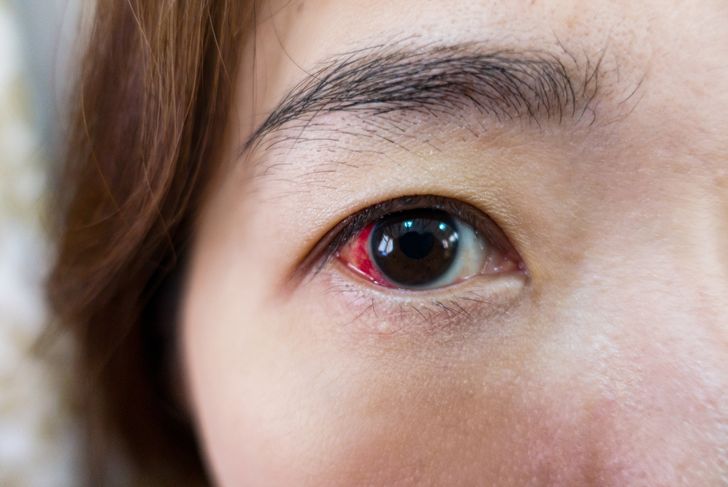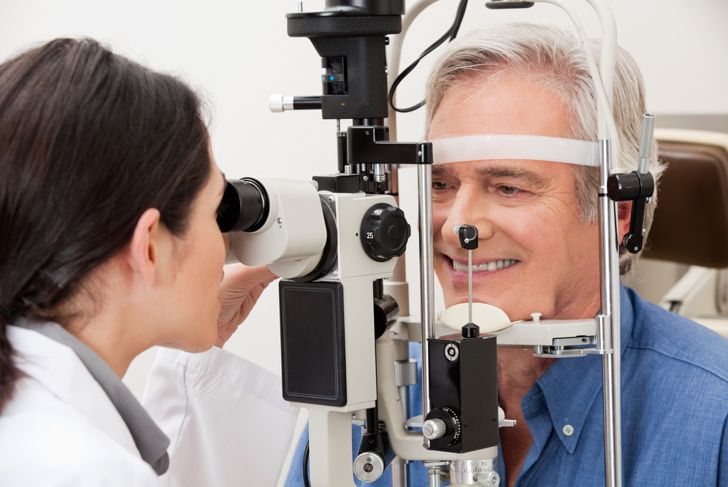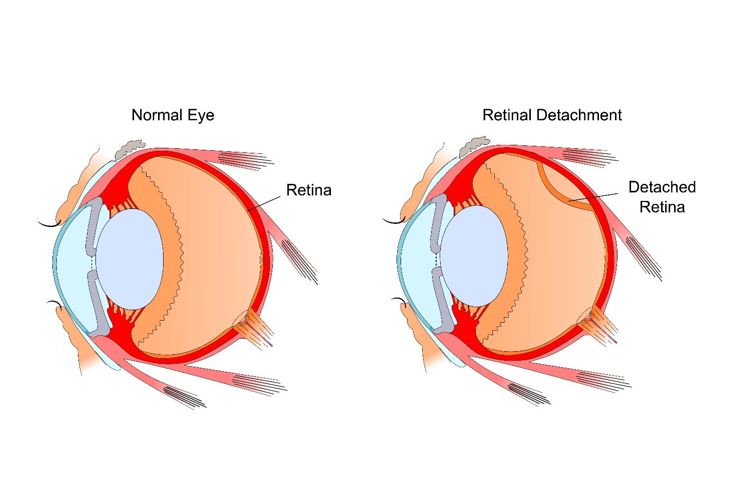A detached retina occurs when this thin layer of tissue at the back of the eye pulls away. People with a detached retina experience spots or “floaters” across their vision that can eventually affect sight. They may also see flashes of light or darkness in their peripheral vision. It is important to treat a detached retina quickly.
What are the different types of a detached retina?
There are three major types of a detached retina. They vary according to the severity, cause, and commonality. Rhegmatogenous detached retina refers to a break or tears in the retina. This would allow fluid to penetrate under the retina, thus separating it from the RPE or retinal pigment epithelium. This is the most common type of detached retina.Tractional detached retina refers to scar tissue forming on the surface of the retina. Because of this, it starts to contract then separate from the RPE. This type is less common than the first one. Finally, exudative detached retina usually occurs because of retinal diseases, trauma or injury. Here, fluid leaks underneath the retina even though there aren’t any breaks or tears.
What may cause detached retina?
There are different factors which may cause a detached retina. One of the most common is a trauma which hits the eye directly. This can lead to breaks, holes or tears in the retina. The condition might manifest days, weeks, months or even years after the traumatic incident. There are some injuries which can also cause a detached retina. These include sports injuries, getting hit by BB guns or bottle rockets, and more. Aside from trauma and injury, there are also other causes for this condition. It may develop as a result of disease complications. These include inflammatory disorders, retinopathy of prematurity, diabetic retinopathy, and more.
What are the risk factors for a detached retina?
A detached retina can happen no matter what age you’re in. However, it’s a lot more common in people aged 40 and above. Also, it occurs more in men than in women. There are some risk factors which may increase the likelihood of developing the condition. If a person is exceptionally nearsighted, this is a risk factor for a detached retina. Other risk factors include having an existent detached retina in one eye or a history of the condition in the family. Also, if you’ve had cataract surgery or an eye injury, you’re more prone to getting the condition. Finally, having other eye disorders or diseases is another risk factor. These include lattice degeneration, retinoschisis, degenerative myopia or uveitis.
What are the common symptoms of a detached retina?
There are some common symptoms you might notice if you’re suffering from a detached retina. You might notice a gradual or sudden increase in the “floaters” in your field of vision. You may also start noticing light flashes occurring in your eye. One more common symptom is observing the appearance of a curtain or dark area over your field of vision. You should consider detached retina as a medical emergency. It’s a serious condition which needs immediate treatment. So if you’re experiencing any of these symptoms, you should consult with a specialist right away. Do this to avoid complication or to prevent the condition from getting worse.
How does a doctor diagnose and treat detached retina?
It’s a fact that tears, breaks or detachments in the retina aren’t visible from the eye’s exterior. If you want to have, the condition diagnosed. For a specialist to identify the condition, he has to perform a comprehensive eye exam. The doctor will make use of an instrument with light magnification to examine the interior of your eye. The doctor may also use special magnification lenses and other instruments to diagnose the condition. If a doctor can diagnose the condition early, he will be able to administer the proper treatment. This is important if you want to repair your vision. If the tear is very small, an eye doctor can treat detached retina by gas or laser. These are fairly simple procedures. For more serious cases, you need to have surgery.
What are the surgical options to treat detached retina?
There are two main kinds of surgery a doctor can perform. In scleral buckle, the doctor places a small band on the exterior side of your eyeball. This is a fairly simple procedure where the band does most of the work. The band would exert pressure on the eyeball so that the interior wall draws close to the detached retina. As time goes by, the doctor will use natural pumps to reattach your retina to the rest of the eye. In a vitrectomy, the doctor removes then replaces your vitreous. This is a substance within your eye which gives the structure and shape. Here, the doctor would make a tiny incision in the white part of the eye. Through it, he can reach in and remove the vitreous. Then, the doctor injects a special gas which will push the retina towards the interior wall of the eye. This causes the retina to reattach itself naturally.
Is there any way to treat detached retina using medications only?
Unfortunately, there’s no way to treat detached retina through medications only. However, there are times when detached retina disappears even without any surgery. The only way this can happen is if you’re able to treat the condition which caused the detached retina in the first place.
Is detached retina a common condition?
This isn’t a prevalent condition. In fact, only about eight people out of 10,000 develop the condition. It occurs on a rare occasion and often results in sight-threatening event.A detached retina can develop at any age, but it’s a lot more common in the later years of life. As per the study reported in Journal of Medical Association, retinal tears starts with onset of flashes. These are the warning signs of a detached retina, and up to 50 percent of people experience these signs as early symptoms of retinal tear.
How can you avoid detached retina?
This is a very serious condition which affects a very sensitive part of your body. Unfortunately, there’s no way to avoid it totally. What you can do is learn about the condition and its symptoms. This is possibly your best defense strategy. If you notice any of the symptoms, consult with your eye doctor immediately. Also, if you have any of the risk factors listed above, have your eyes checked regularly.
Can detached retina cause blindness?
The short answer is yes. In fact, even a small blockage caused by detached retina can also lead to blindness. This is especially true if you don’t seek treatment right away. Also, if one of your eyes has a detached retina, it’s important to have it treated so it won’t spread to the other. This will further increase your risk of blindness.

 Home
Home Health
Health Diet & Nutrition
Diet & Nutrition Living Well
Living Well More
More




















